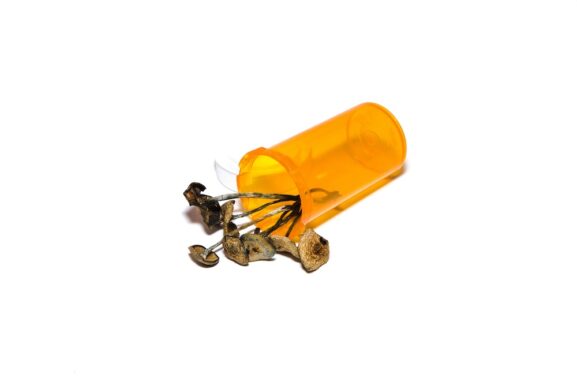Why Aaron Rodgers’ Ayahuasca Admission Is Significant, And What We Can Learn From It
NFL quarterback Aaron Rodgers’ ayahuasca experience sent shockwaves through the sports world. As the latest professional athlete to open up about his use of psychedelic drugs, Rodgers’ admission comes at a time when he’s still on top of his sport. You might find yourself rolling your eyes at yet another athlete publicly discussing their use of psychedelics, but there are a few reasons Aaron Rodgers’ ayahuasca story stands out.
While Rodgers, 38, is certainly not the first pro-athlete to talk about using ayahuasca or psilocybin, it’s rare to see such an admission from an active professional athlete. That’s because most athletes speak up following retirement, not at the height of their careers.
Not just an active player but a wildly successful one, Rodgers’ choice to speak openly about his use of hallucinogenic plant medicines shows that the stigma around both psychedelics and mental health in professional sports is improving — though as some coverage of the news illustrates, not everyone is ready to accept that one of the league’s most impressive players credits psychedelic drugs for his latest professional wins.
Aaron Rodgers has effectively taken the conversation about psychedelics to millions of football fans (in 2021, the regular NFL season averaged 17.1 million viewers), raising some important points along the way about what these powerful drugs are capable of—and what they aren’t.
RELATED: Mike Wilson: Gaming’s Medicinal Madman
Aaron Rodgers’ Ayahuasca Experience Teaches Him About Unconditional Love
The Green Bay Packers quarterback isn’t your average football player. In 2021, Rodgers won the league’s most valuable player award for the second time in two years, and the fourth time overall since his NFL debut in 2008. Earlier this year, he signed a three-year, $150-million contract with the Packers, making him the highest-paid quarterback in the league.
During a recent Aubrey Marcus Podcast episode, Rodgers said he’d taken ayahuasca prior to the 2020 and 2021 seasons, and believes it was no coincidence he would go on to be named MVP. Ayahuasca, he said, improved his mental health dramatically by showing him how to love himself, and in turn, it enabled him to be a better teammate.
“The greatest gift I can give my teammates, in my opinion, is to be able to show up and to be someone who can model unconditional love to them,” he explained on the show.”
Obviously it’s important I play well and show up and lead… but they won’t care about what you say until they know how much you care.”
RELATED: Modernized vs. Traditional Ayahuasca Ceremonies: Which is Right For You?
Not Everyone Understands Psychedelics
Not all major-league commentators want to praise Rodgers’ newfound views on unconditional love.
As NBC Sports’ Peter King pointed out, “Rodgers used the word ‘love’ 20 times in a 1,597-word conversation… Of all the things I never thought I’d be writing about covering the NFL, the reigning MVP having a three-day experience with the Quechuan natives in South America ingesting psychedelics would be high on the list.”
While an NFL spokesperson revealed on Monday that Rodgers’ use of ayahuasca doesn’t violate the NFL’s substance use policy (though a controlled substance in the U.S., the active drug in ayahuasca, DMT, is not on the leagues’ list of banned substances and would not trigger positive drug test results), it’s not necessarily the brew’s illegal status that has some people turned off.
Aaron Rodgers’ ayahuasca admission shows that, although psychedelics may have returned to the mainstream, there are plenty of people who still disagree with (and fail to understand) their use.
Colin Cowherd, host of The Herd on Fox Sports Radio, dismissed Rodgers’ claim that ayahuasca led to a better experience on the field, and likened the quarterback’s trip to Peru to a rum-fueled bender.
“It happened to me too — it’s called college. I had six rum drinks in 90 minutes… I saw weird things too,” he said. “Aaron, lots of people have tried this psychedelic tea. They’re called hippies, burnouts, and affluent white people with too much time on their hands, and nobody in their life to call out their crap.”
READ NEXT: 3 Ways Mushroom Therapy Can Help You Excel In Your Career
Ayahuasca Not A One-Time Fix
While Aaron Rodgers’ ayahuasca experience may have set his success in motion, Rodgers didn’t credit the brew alone, and highlighted the importance of integration and healthy habits.
“It hasn’t all been just the ayahuasca journey. It’s been therapy, and it’s been meditation,” he told Marcus. “It’s been changing habits that weren’t giving me any type of joy. Eating better. Taking care of myself a little bit better. Being more gentle with myself.”
In the follow-up interview with King, Rodgers admits that not all areas of his life saw improvement by the experience. One of his intentions — to reconcile with estranged members of his family — is still a work in progress.
While it’s clear more education about psychedelics is necessary, Aaron Rodgers’ ayahuasca story also illustrates a bigger picture. No matter what the Colin Cowherd’s of the world have to say, these powerful drugs no longer only have links to hippies and burnouts. Yes, even professional quarterbacks can take part, too.



